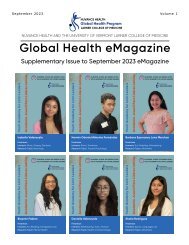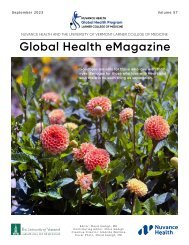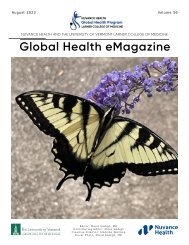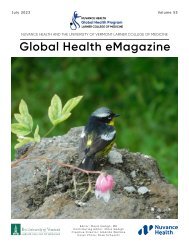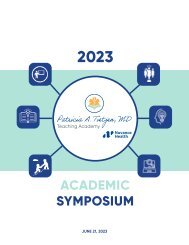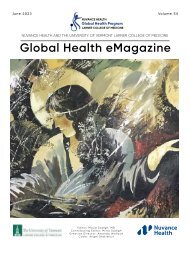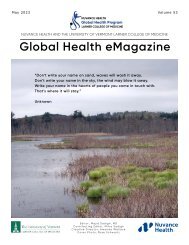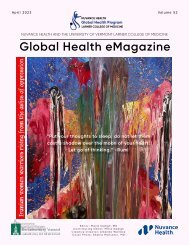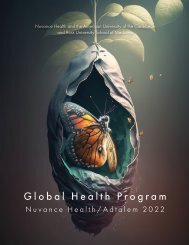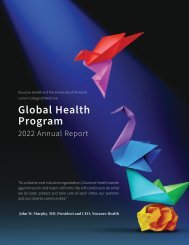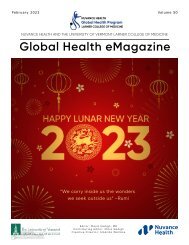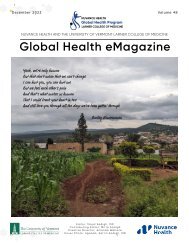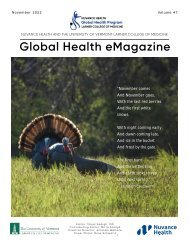eMagazine March 2023
Create successful ePaper yourself
Turn your PDF publications into a flip-book with our unique Google optimized e-Paper software.
OUR PEOPLE,<br />
OUR MISSION<br />
Global Health<br />
<strong>eMagazine</strong><br />
<strong>March</strong> <strong>2023</strong><br />
Highlights<br />
Reviews<br />
GH Narrative<br />
Reflections<br />
Hispanic and Latinx Voices<br />
Global Local<br />
Voices of Ugandan<br />
Students<br />
Nursing Division<br />
Women’s Health Education<br />
Innovation and Technology<br />
Our Beautiful Planet<br />
Art to Remind Us of Who We<br />
Can Be<br />
Article of the Month<br />
You’re Invited<br />
Photo News<br />
Calendar<br />
Global Health Family<br />
Resources<br />
Previous Issues of<br />
the <strong>eMagazine</strong><br />
Memories: Elvis Presley<br />
Article of the Month<br />
Responding to the Turkey-Syria earthquake: What will it take?<br />
The Lancet<br />
February 18, <strong>2023</strong><br />
“Such things have always happened. It’s part of destiny’s plan.” The reaction<br />
of Recep Tayyip Erdoğan, Türkiye’s President, to the devastating earthquakes<br />
that struck Türkiye and Syria on Feb 6, betrays a dangerous sense of fatalism, if<br />
not an active effort to deflect responsibility. As of Feb 14, the earthquakes have<br />
caused more than 35 000 deaths, and injured many more. As the chances of<br />
finding survivors under the rubble diminish, a second catastrophe is looming.<br />
The widespread destruction of buildings and infrastructure has left more than a<br />
million people homeless in Türkiye and displaced 5 million in Syria. These people<br />
need urgent shelter from freezing temperatures, food, clean water, and medical<br />
care. Earthquakes are natural disasters. They cannot be prevented and some<br />
harm is inevitable. But the human cost can be mitigated by effective preparation,<br />
response, relief, and rebuilding—if those in positions of responsibility are willing<br />
to do so.<br />
The earthquake brought back memories of earlier disasters. “It’s impossible to<br />
get used to earthquakes”, Ezer said. “Nothing will be the same after this”, he<br />
added. “If natural disasters aren’t properly managed, they turn into artificial<br />
disasters. We could have saved so many more people. I noticed this week that<br />
we were experiencing the same problems we faced during the 2011 Van-Erciş<br />
quake. We’ve not been prepared for this at all.”<br />
Link to the article:<br />
Responding to the Türkiye–Syria earthquake: what will it take?<br />
37<br />
Article continued on next page >>




